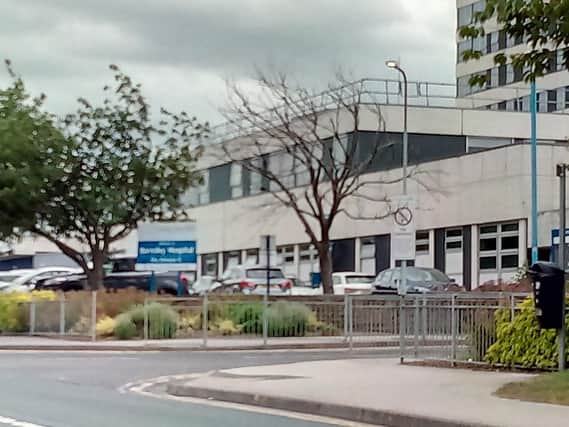Police work to cut the huge demand on resources from South Yorkshire's major hospitals


The Northern General in Sheffield, along with Doncaster Royal Infirmary and the district general hospitals accounted for a total of 740 calls for assistance in three months this Spring, accounting for 2140 hours of police time.More than half of that went on responding to calls for help from the Northern General, which soaked up 1200 hours, with Doncaster Royal Infirmary accounting for 440 hours of police time, with officers called to respond to crimes, anti social behaviour and public safety issues.The lowest number of calls were generated from Rotherham Hospital, at 80, but they accounted for 280 hours of policing time, compared with 220 hours needed to deal with incidents at Barnsley, where there were 130 calls.South Yorkshire Police are now able to analyse their caseload and identify the source of the biggest demands on their resources, so they can conduct targeted work to try to minimise problems.That analysis put the four hospitals in the top 40 sources of demand on police and, following work earlier this year, they were among only five from that list where no improvement had been made.Now the force has worked closely with Barnsley Hospital, which has recruited a team of 15 security officers – compared to a typical one or two – and demand has crashed by half, though police still regard is as high.It is intended that lessons learned through work with Barnsley Hospital, such as joint training for police and their security staff, can now be repeated elsewhere in the county, with individual ‘problem oriented policing’, or POP, plans being drawn up for each site, under the umbrella of a hospital demand-reduction group, which is chaired by a superintendent.Assistant Chief Constable Dave Hartley said: “For the force, 267 full offer working days that we committed to the hospitals, you might say that is just the tip of the iceberg.“What is behind that is time spent submitting crime reports, investigating, searching for individuals. That figure might increase fourfold.“It is around identifying where our demand is and how we can go about minimising that,” he said.Problem solving policing is now being used widely by the force, which has 99 active plans in place, including those for hospitals.Chief Constable Stephen Watson said: “When we are talking about the force becoming more pro-active and problem solving, this is where it is becoming tangible.“The top 40 demand areas were not previously understood. Thirty five of those 40 top locations have seen a reduction. The stubborn remainers are being worked on in more detail.”Reducing demand means there is less need for ‘response’ officers, who react to emergency calls, meaning some can be transferred to neighbourhood duties where their role is to prevent problems rather than act when they do occur.“Over time, we expect that fewer of our people will be chasing their tails and can be involved in preventing problems.